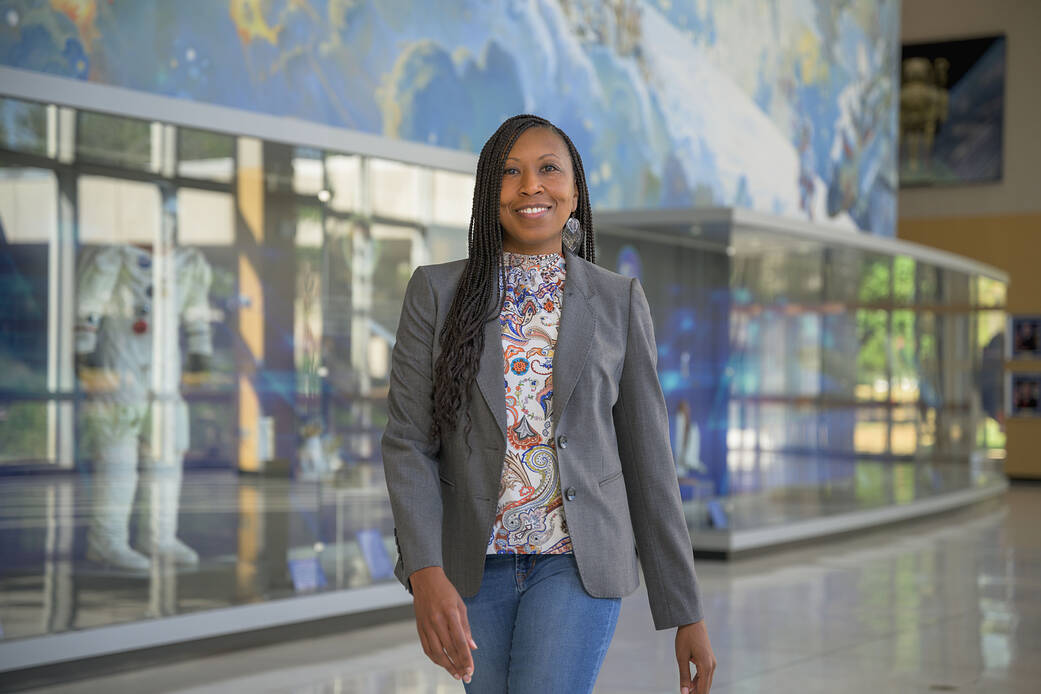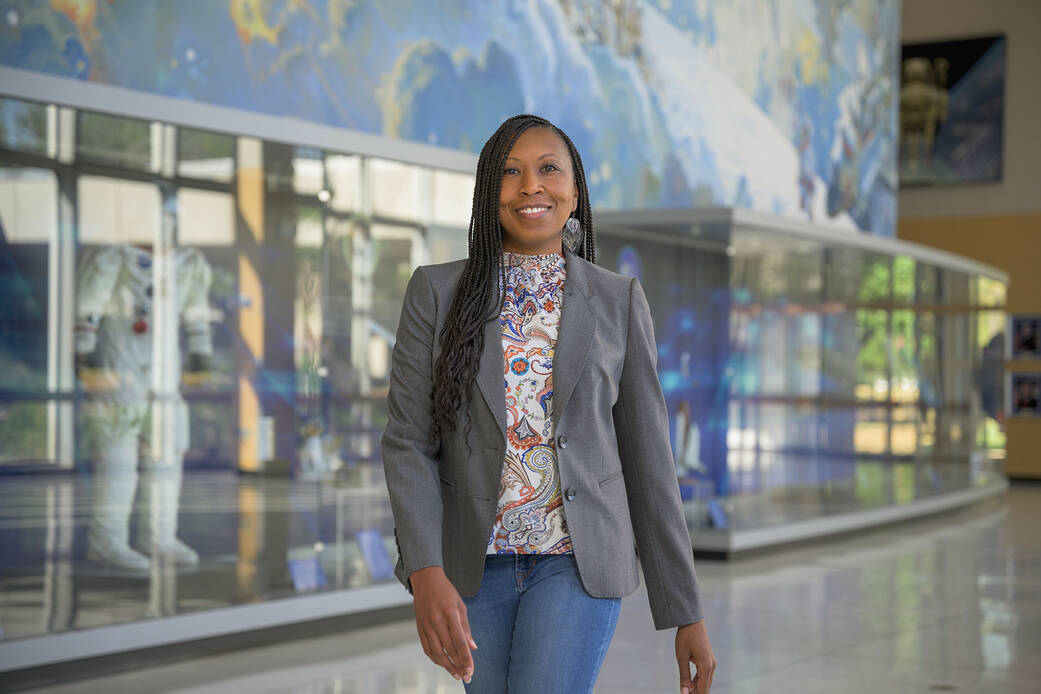
“During my first internship [as a Physics major in college], I had a female mentor who was well respected in the field. It was interesting watching her. She had what I call quiet power — and I see myself as also having that quiet power — where you don’t have to be the loudest one in the room to be respected or to get your point across or to lead a team. I watched her [leadership style] over a few years because I interned with her multiple times. It was nice to see the other researchers respect her knowledge and follow her lead.
“And so that, for me, was affirmation that even in this male-dominated field, I don’t have to be the alpha. I don’t have to be loud. I don’t have to step over people to get things done and do them well. That was pretty defining for me [and the way I mentor my students].
“My mentor immediately trusted me to do the work. I walked in, day 1, and she said, ‘Hey, you’re going to build a quantum cascade laser,’ and I’m like, ‘I don’t even know what that is. Like, what do you mean?’ But she and the rest of the team completely trusted that I could step in, do the research I needed to do, and carry out the tests that needed to be carried out without micromanaging and overdirecting my path.
“I think I do that with my interns and teams too — I give them the space to grow and learn and try to just be their guide along the way.”
— Trinesha M. Dixon, Management and Program Analyst, NASA Office of STEM Engagement, NASA’s Johnson Space Center
Image Credit: NASA / Riley McClenaghan
Interviewer: NASA / Thalia Patrinos



